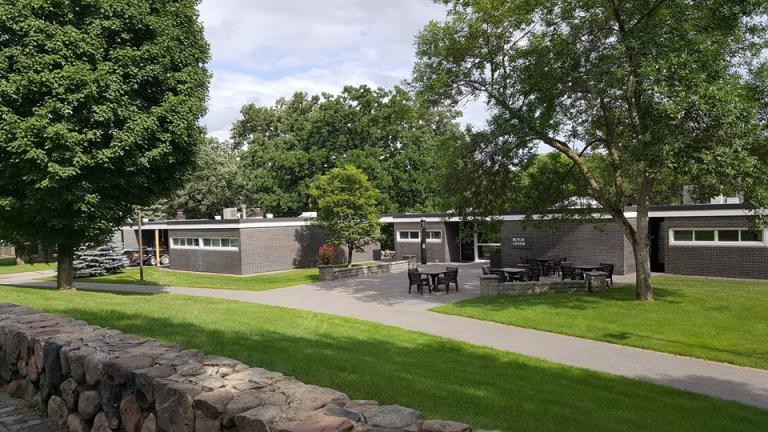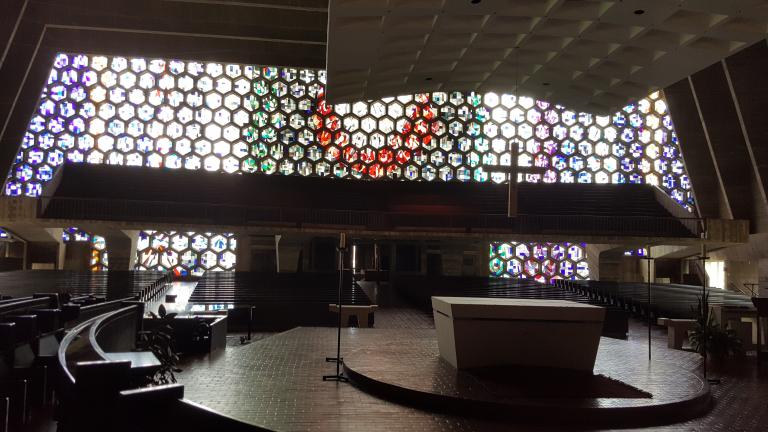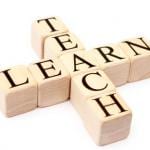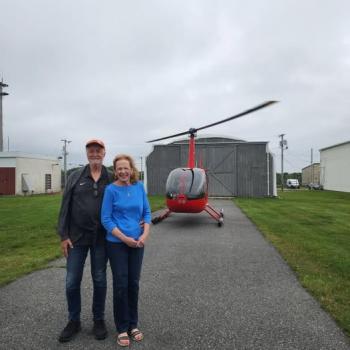In her wonderful memoir Take This Bread, Sara Miles tells us of a conversation she had with a fellow volunteer as they distributed food at their church’s food pantry one Friday morning. Both Sara and Steve were lay eucharistic ministers who brought the chalice to parishioners on Sunday morning; they noted the similarities between handing out food on Fridays and their activities at the altar on Sunday, including the importance of looking past the ritual and making eye contact with each person being served and saying the person’s name. “Yeah,” said Steve,” Isn’t that freaky? When you actually see inside them. Like this God stuff is real.”
I first encountered Sara Miles’ work last summer at a writers’ conference in Minnesota, at a place where ten years ago the “God stuff” started becoming real for me in ways that I continue to both celebrate and grapple with.

In January 2009, the day before Barack Obama took the oath of office for his first term as President, I arrived on a bitterly cold afternoon at the Collegeville Institute for Ecumenical and Cultural Research for a four-month sabbatical semester as one of eight or nine resident scholars. I had just finished four years of chairing my large and often fractious academic department, my wife and I were still emerging and recovering from the most challenging years of our marriage (then a bit over twenty years in), and I was exhausted. I knew I was physically tired and hoped that the Institute and the surrounding college campus and environs would be as peaceful and restorative as advertised. The title of the book project I planned to work on should have told me something about my worn-out spirit: SEEING THE INVISIBLE: Creative Faith and the Absence of God.
I imagined the project as an investigation of whether it is possible to live a meaningful life of faith in a world in which God is apparently absent, but the project was an academic reflection of something much deeper. For most of my fifty plus years, I had struggled with the conservative, fundamentalist Protestant Christianity in which I was raised. What soon became clear to me in Minnesota was that what I thought was a long-term, low-grade spiritual dissatisfaction had become, without my being aware of it, a full blown spiritual crisis. Beneath my introverted, overly cerebral surface my soul was asking John the Baptist’s question: “Are you the one, or is it time to look for another?”
During the evening of the first full day of the writers’ conference last summer, as we went around the table introducing ourselves , I told my new colleagues that although I am not naturally given to hyperbole, the most honest thing I could say about why I was at this conference in this place at this time was that “this place changed my life.” The changes were subtle and slow, so slow as to be unnoticeable at first.
But as I tested the waters of daily prayer with the monks at St. John’s Abbey a quarter mile up the road, I noticed a space of silence and peace slowly opening inside of me that I had never known. No voices, no visions, no miracles—but I was writing differently. The low-grade anger that had accompanied me for most of my life began to dissipate. I felt more and more like a whole person instead of a cardboard cutout of one. The world looked different. I felt different. Eventually a few of my colleagues said, “You’re not the same person you were when you first got here.” And they were right–I wasn’t. I began spending more time with the monks at prayer, often three times a day. Essays began to flow from a place I didn’t recognize, but really liked. Little had changed outwardly, but everything was changing.
Now, more than ten years later, I know that my relationships, my writing, my teaching, and my faith have all continued to evolve from those months at Collegeville. I returned several times subsequently to get what I call my “Collegeville fix,” but last summer’s workshop was my first time back in almost four years. This blog, now seven years old, began and has grown inexorably as I explore new paths in writing and put my deepest inner convictions and doubts on public display. This is not a linear or clean narrative; like the evolutionary process itself, the changing me carries lots of baggage from the past, some welcome and some not.
What has happened and is happening with me is nothing like the “born again” conversion experience that was the sine qua non of the religious world I grew up in. As Sara Miles writes, “Conversion isn’t a moment: It’s a process, and keeps happening, with cycles of acceptance and resistance, epiphany and doubt . . . It’s hard.” The more I change, the less certain I am about much of anything with relation to my faith—I’m finding that growth makes a mockery of claims to certainty. But I wouldn’t have it any other way.

Morning prayer at 7:00 AM on the first day of the conference last summer ago took me back to the physical and internal space in St. John’s Abbey where I learned ten years ago, over the passage of several months that “my deepest me is God,” surrounded by silence alternating with collective psalms and prayers with the Abbey monks. It also brought me back to two favorite texts that have sunk deep into my soul over the past several years. Psalm 149 announces the good news that God is not angry with us, but offers both exhilaration and peace:
For the Lord takes delight in his people
He crowns the poor with salvation.
Let the faithful rejoice in their glory,
shout for joy and take their rest.
And the “Benedictus,” the canticle that is the capstone of every morning prayer, provides a promise that our contemporary world, shattered with division and strife, badly needs to hang on to:
In the tender compassion of our God,
the dawn from on high shall break upon us,
To shine on those who dwell in darkness and the shadow of death,
and to guide our feet into the way of peace.
I’m a very different person than I was when I showed up in Minnesota on that bitterly cold January day in 2009, different in ways that are better shown than described. My changing and emerging faith is uncertain, doubtful, non-dogmatic, and alive. Sara Miles once again: “Christianity isn’t an argument I can win, or even resolve. It isn’t a thesis. It is a mystery that I am finally willing to swallow.” And because of that, I know that this God stuff is real.













